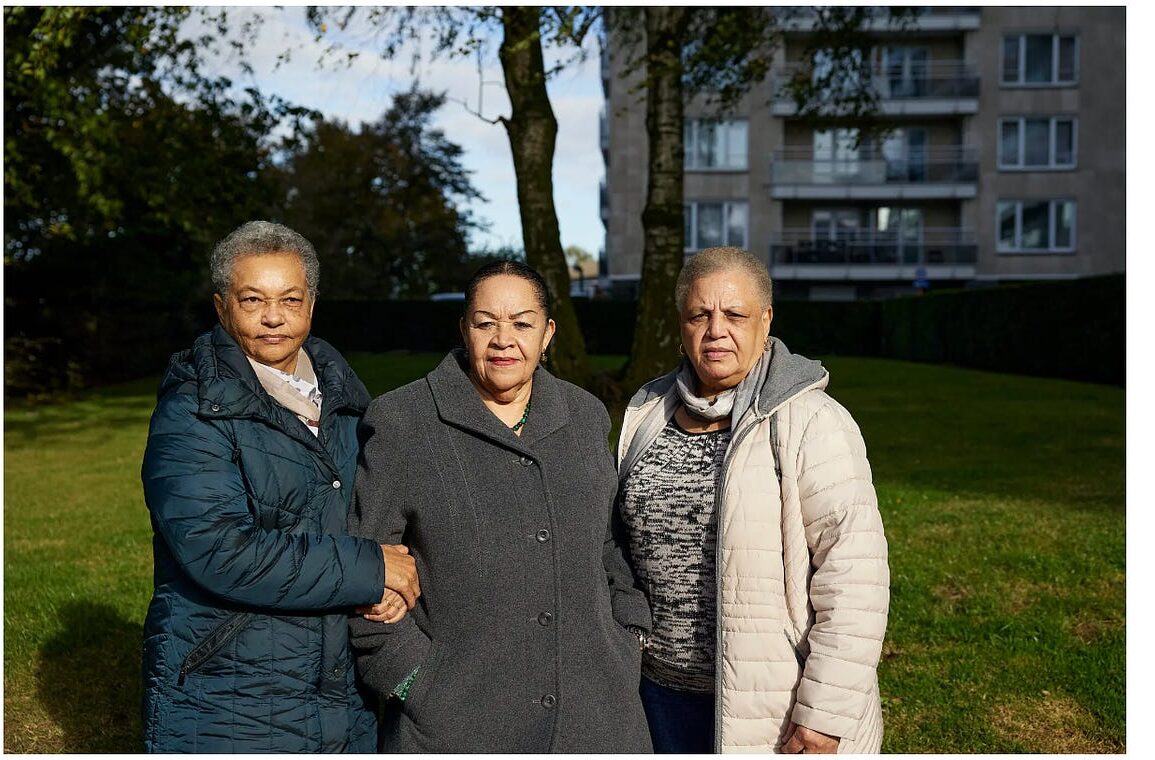From left, Noelle Verbeken, Léa Tavares Mujinga and Simone Ngalula, three of the five women who sued the Belgian state for acts committed under colonial rule in Congo, in Brussels in 2021.Credit…Ksenia Kuleshova for The New York Times
The women, now in their 70s, were taken from their mothers when they were young children and placed in orphanages under a state policy.
The court said the government had a “plan to systematically search for and abduct children born to a Black mother and a white father”.
On Monday judges called this a crime against humanity and said the kidnappings were “an inhumane act of persecution”.
The Belgium government in 2019 issued a formal apology to an estimated 20,000 victims of forced family separations in DR Congo, as well as Burundi and Rwanda.
DR Congo was governed by Belgium as a colony from 1908 to 1960.
Monique Bitu Bingi, Léa Tavares Mujinga, Noëlle Verbeken, Simone Ngalula and Marie-José Loshi launched a legal case for compensation in 2021.
They were all taken by the state under the age of seven and placed in orphanages mainly managed by the Catholic Church.
Bitu Bingi had previously told AFP news agency: “We were destroyed. Apologies are easy, but when you do something you have to take responsibility for it.”
I feel so relieved. The Belgian government took my youth away, and it was something I had to fight for, to explain to the world what happened. -Monique Bitu Bingi
The legal fight succeeded on Monday in the Brussels Court of Appeal which overturned an earlier court’s ruling which found too much time had passed for them to be eligible for reparations.
As the court ruled the state’s actions a crime against humanity, this removed any statute of limitations.
This is the first case in Belgium to have highlighted the estimated 20,000 children born to white settlers and local Black women who were forcibly removed from their families during the 1940s and 1950s.
Most white fathers refused to recognise their mixed-race children or acknowledge paternity, and the children also did not automatically receive Belgian nationality.
As such they were taken into state care and placed in Church-run orphanages, where in many cases they endured further abuse.
In 2017, the Catholic church apologised to the victims for its part in the scandal.
Bambi Ceuppens, an anthropologist at the Royal Museum for Central Africa in Tervuren, Belgium, called the ruling historic.
The arguments that it was a thing of the past, that it had to be seen in a colonial context, and that the Belgian modern state couldn’t be sanctioned for deeds committed under colonial rule, have been made in the past. This time, it didn’t hold. -Bambi Ceuppens


